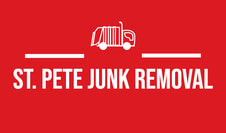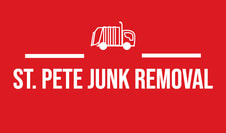Yard Waste Removal
Eco-Friendly Yard Waste Removal: Recycling and Composting for a Pristine Outdoor Space
Maintaining an orderly hazard free yard is not just about aesthetics; it's a responsibility every homeowner shares. Proper yard debris removal, recycling, and composting play a crucial role in this endeavor. Not only do they contribute to a cleaner environment, but they also ensure compliance with city codes, avoiding potential fines or warnings from city inspectors.
The Necessity of Yard Waste Removal
Yard debris, if left unchecked, can become more than just an eyesore. It can attract pests, become a breeding ground for diseases, and even pose fire hazards. Ensuring regular and efficient removal of this rubbish is vital for a safe and healthy environment.
Recycling Yard Waste: A Step Towards Sustainability
Recycling yard waste is a commendable approach that benefits both the environment and your garden. Many items, such as leaves, grass clippings, and small branches, can be recycled. This practice significantly reduces the amount of waste sent to landfills and promotes a more sustainable lifestyle.
The Art of Composting: Turning Waste into Gold
Composting is an excellent way to recycle organic yard waste. By composting leaves, grass clippings, and other organic materials, you create a nutrient-rich soil amendment. This process not only reduces waste but also enhances the health and beauty of your garden.
Staying Ahead of City Code Regulations
Keeping your yard free from debris is not just about cleanliness; it's also about adhering to city codes. Many cities have specific regulations regarding yard waste disposal. Staying informed and compliant is crucial to avoid penalties.
Best Practices for Yard Waste Removal
Effective yard debris removal involves more than just raking leaves or trimming bushes. It includes proper sorting, utilizing eco-friendly disposal methods, and staying consistent with maintenance.
Recognizing the Types of Yard Debris
Understanding the different types of yard waste is the first step in effective removal. This includes differentiating between compostable materials and those that need to be recycled or disposed of differently.
Implementing Eco-Friendly Debris Disposal
Eco-friendly disposal methods such as composting and recycling should be prioritized. These methods not only keep your yard clean but also contribute positively to the environment.
Regular Yard Maintenance: A Proactive Approach
Regular maintenance is key to preventing the accumulation of debris in yard. A routine schedule for raking, pruning, and other garden tasks can greatly reduce the workload.
Collaborating with Local Recycling Centers
Partnering with local recycling centers can make the process of disposing of non-compostable yard waste easier and more effective. These centers can guide you on how to properly recycle various types of yard debris.
Engaging Professional Yard Waste Removal Services
For larger or more challenging yards, hiring professional yard waste removal services such as St. Pete Junk Removal, can be a practical solution. Our services can handle larger volumes of waste and ensure that it is disposed of properly.
FAQs on Yard Debris Removal
**How often should I remove yard debris?**
Regular removal is recommended, especially during fall and spring, to prevent accumulation and potential issues.
**Can all yard waste be composted?**
Most organic materials like leaves and grass clippings can be composted. However, diseased plants and certain types of weeds should be avoided in home compost operations. Larger operations like the ones run by Pinellas county essentially cook the seeds and disease out of the resulting product.
**What should I do with large branches or tree limbs?**
Large branches may need to be cut and disposed of at the local dump where they will be processed into mulch. We are equipped and experienced to handle such tasks with ease.
**Is yard debris removal essential for pest control?**
Yes, regular removal helps prevent the accumulation of materials that can attract pests. These can range from bugs and termites to rats and racoons in St. Pete.
**How can I find local recycling centers for yard waste?**
Check with your local government website or waste management services for information on local recycling centers.
**Can yard debris removal help with fire prevention?**
Yes, removing dry and combustible materials from your yard can reduce the risk of fire from lightning, smoking or even fireworks.
Conclusion
Efficient yard waste removal, including recycling and composting, is not only a matter of maintaining a beautiful yard but also an essential practice for environmental sustainability and compliance with city codes. By adopting eco-friendly methods and staying diligent in your yard maintenance, you contribute to a cleaner, safer, and more sustainable community.
Eco-Friendly Yard Waste Removal: Recycling and Composting for a Pristine Outdoor Space
Maintaining an orderly hazard free yard is not just about aesthetics; it's a responsibility every homeowner shares. Proper yard debris removal, recycling, and composting play a crucial role in this endeavor. Not only do they contribute to a cleaner environment, but they also ensure compliance with city codes, avoiding potential fines or warnings from city inspectors.
The Necessity of Yard Waste Removal
Yard debris, if left unchecked, can become more than just an eyesore. It can attract pests, become a breeding ground for diseases, and even pose fire hazards. Ensuring regular and efficient removal of this rubbish is vital for a safe and healthy environment.
Recycling Yard Waste: A Step Towards Sustainability
Recycling yard waste is a commendable approach that benefits both the environment and your garden. Many items, such as leaves, grass clippings, and small branches, can be recycled. This practice significantly reduces the amount of waste sent to landfills and promotes a more sustainable lifestyle.
The Art of Composting: Turning Waste into Gold
Composting is an excellent way to recycle organic yard waste. By composting leaves, grass clippings, and other organic materials, you create a nutrient-rich soil amendment. This process not only reduces waste but also enhances the health and beauty of your garden.
Staying Ahead of City Code Regulations
Keeping your yard free from debris is not just about cleanliness; it's also about adhering to city codes. Many cities have specific regulations regarding yard waste disposal. Staying informed and compliant is crucial to avoid penalties.
Best Practices for Yard Waste Removal
Effective yard debris removal involves more than just raking leaves or trimming bushes. It includes proper sorting, utilizing eco-friendly disposal methods, and staying consistent with maintenance.
Recognizing the Types of Yard Debris
Understanding the different types of yard waste is the first step in effective removal. This includes differentiating between compostable materials and those that need to be recycled or disposed of differently.
Implementing Eco-Friendly Debris Disposal
Eco-friendly disposal methods such as composting and recycling should be prioritized. These methods not only keep your yard clean but also contribute positively to the environment.
Regular Yard Maintenance: A Proactive Approach
Regular maintenance is key to preventing the accumulation of debris in yard. A routine schedule for raking, pruning, and other garden tasks can greatly reduce the workload.
Collaborating with Local Recycling Centers
Partnering with local recycling centers can make the process of disposing of non-compostable yard waste easier and more effective. These centers can guide you on how to properly recycle various types of yard debris.
Engaging Professional Yard Waste Removal Services
For larger or more challenging yards, hiring professional yard waste removal services such as St. Pete Junk Removal, can be a practical solution. Our services can handle larger volumes of waste and ensure that it is disposed of properly.
FAQs on Yard Debris Removal
**How often should I remove yard debris?**
Regular removal is recommended, especially during fall and spring, to prevent accumulation and potential issues.
**Can all yard waste be composted?**
Most organic materials like leaves and grass clippings can be composted. However, diseased plants and certain types of weeds should be avoided in home compost operations. Larger operations like the ones run by Pinellas county essentially cook the seeds and disease out of the resulting product.
**What should I do with large branches or tree limbs?**
Large branches may need to be cut and disposed of at the local dump where they will be processed into mulch. We are equipped and experienced to handle such tasks with ease.
**Is yard debris removal essential for pest control?**
Yes, regular removal helps prevent the accumulation of materials that can attract pests. These can range from bugs and termites to rats and racoons in St. Pete.
**How can I find local recycling centers for yard waste?**
Check with your local government website or waste management services for information on local recycling centers.
**Can yard debris removal help with fire prevention?**
Yes, removing dry and combustible materials from your yard can reduce the risk of fire from lightning, smoking or even fireworks.
Conclusion
Efficient yard waste removal, including recycling and composting, is not only a matter of maintaining a beautiful yard but also an essential practice for environmental sustainability and compliance with city codes. By adopting eco-friendly methods and staying diligent in your yard maintenance, you contribute to a cleaner, safer, and more sustainable community.


